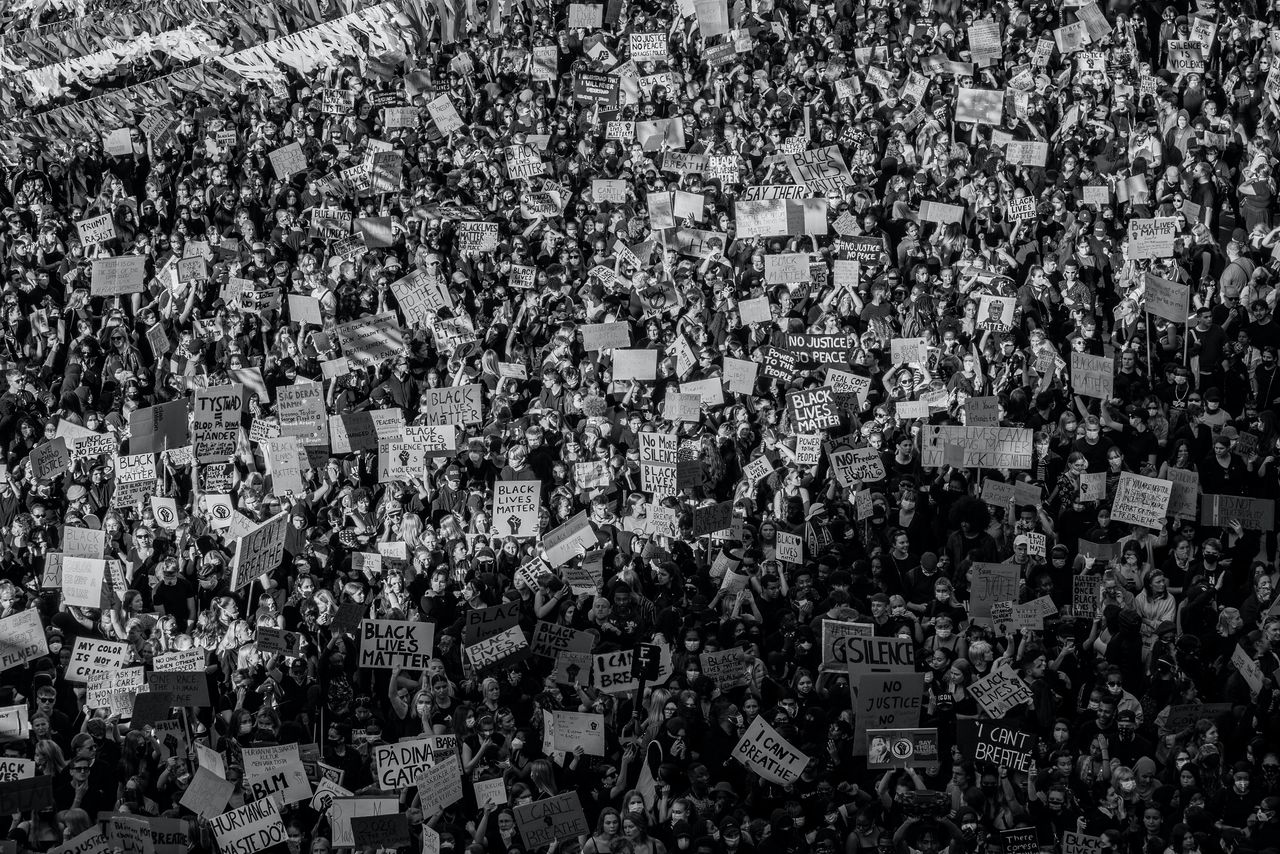By Bailey Chenevert
How corporations are being held to account on promises made during last summer’s reckoning with racial inequity.
The events of last May are beginning to feel like a chapter in a history book. It was a tumultuous time to be an American when the COVID-19 pandemic was at peak destruction and the graphic killing of George Floyd by Minneapolis police officer, Derek Chauvin, sparked protests across the country (and the world) the likes of which have been described as being the largest social movement in American history. Now in hindsight, we can see how an increasing need for corporate action and accountability on systemic issues coexisted with the mounting calls for racial justice, equality, and equity in our everyday lives.
Protests following the deaths of George Floyd and Breonna Taylor
For many of us, our immediate spheres of awareness were inundated with messages, newsletters and infographics from brands all over the world dedicating themselves to the fight for racial equity. Corporate solidarity and promises to address systemic issues were impossible to ignore. Market Watch reported that “two-thirds of the largest U.S. companies made statements after the deaths of George Floyd and Breonna Taylor.” A year later, stakeholders from investors to employees to consumers are looking for the receipts on those statements.
Reviews of commitments to movements like the 15% pledge (a pledge to dedicate 15% of retail space to Black-owned brands) as well as investor-led shareholder groups following up on workforce diversity statements through audit proposals are just two of the many ways that stakeholders are looking to understand the true sincerity of corporate messages from last summer. How corporations respond to this continued pressure will shape how history will regard their PR statements — either as genuine commitments to change the role they played in our society’s larger systemic issues or as nothing more than propaganda and empty promises.
According to this year’s Proxy Preview, a resource used by investors to align their values with corporate engagement, 435 shareholder proposals have been filed concerning companies’ environmental, social and sustainability issues. Many of the proposals request more information on how companies are trying to hire a diverse workforce and address racism in their ranks in the forms of audits and policy changes. In fact, the number of diversity-related proposals has doubled since last year. In addition to these proposals, a public callout from New York City Comptroller Scott Stringer is requesting for 67 of the S&P 100 companies to release their workforce data showcasing progress made on commitments to diversity.
Some of the largest banks on Wall Street, after public demonstrations about their role in slaveholding and loan discrimination, were among those called to publicize racial-equity audits. Citigroup, Wells Fargo and Bank of America quickly and officially opposed the proposals, saying they are already addressing racial equity issues. A back and forth ensued between banks and shareholders. When Citi said it has a $1 billion initiative to make banking more accessible to black communities, shareholder groups responded that Citi recently donated hundreds of thousands of dollars to politicians ranked ‘F’ by the NAACP – and so on and so forth. Eventually, the U.S. Securities and Exchange Commission rejected Citi’s bid to exclude the shareholder proposal. Other companies called to action include names like Amazon, Walmart, Johnson & Johnson and Electronic Arts.
And it hasn’t stopped there – In addition to increased interest from the investor community and government representatives, reports have shown an increase in consumers also expecting corporate action on social issues following the events of 2020. Conscious consumers are becoming more skeptical to PR statements of social solidarity and commitment to change if the messaging lacks transparency on how a company plans to hold themselves accountable. According to the Morning Consult’s State of Consumer Trust Report, “a majority (54%) of Americans distrust ‘Corporate America’” and in particular, “Young Americans are generally more skeptical of brands, and put greater emphasis on ethics.”They want companies to back up their black square posts with transparency and policy change. Otherwise, consumers have shown they’ll continue to do their part by exercising their purchasing power accordingly, as evidenced by the 83% of millennials who want to buy brands that align with their values.
This kind of public discourse is representative of the continued fervor stakeholders across the board have maintained over the last 12 months for corporations to stay the course on their promises. Stakeholders across the spectrum, from consumers to employees and shareholders, are no longer pacified when companies talk the talk; they are demanding that companies also walk the walk.
Bailey Chenevert is a freelance journalist and guest editorial contributor for Cluey Consumer. As a recent 2020 college graduate from the University of Louisiana at Lafayette, Bailey supplemented her studies as both a research assistant and a student editor at La Louisiane. Bailey is passionate about impartial reporting on consumerism and the impacts that fashion brands have on our modern world.

